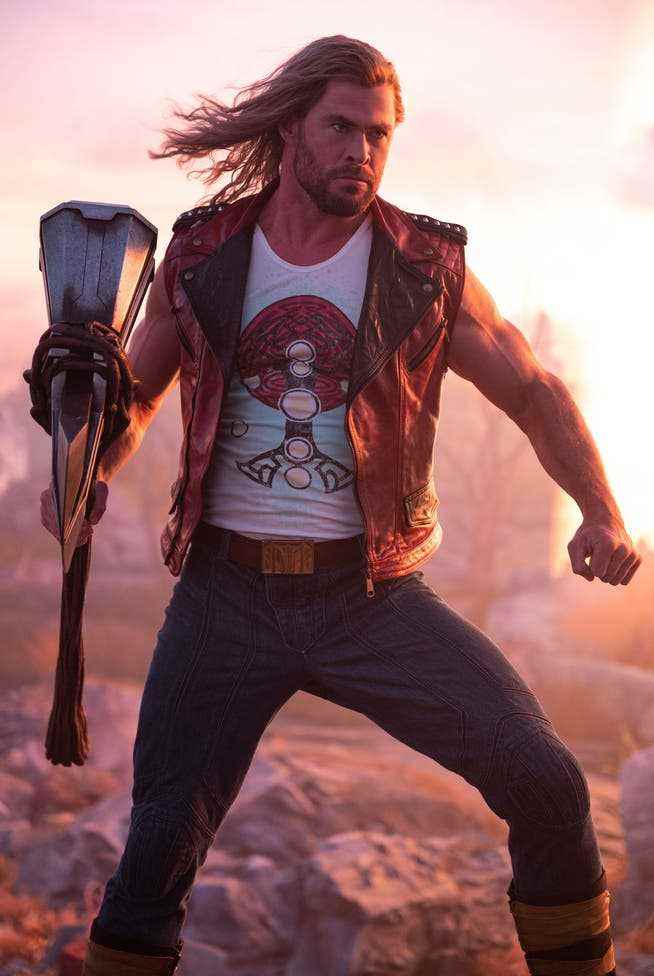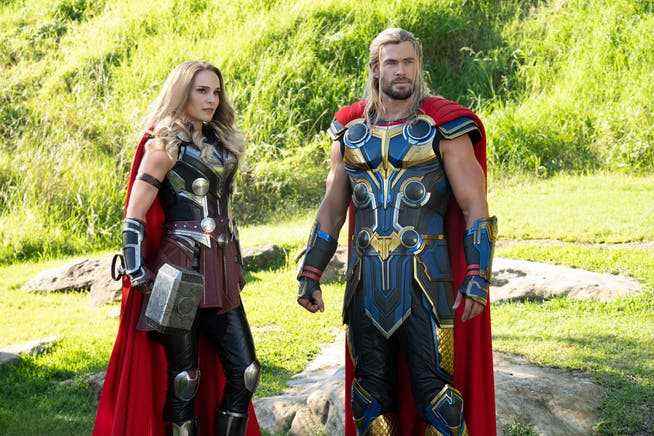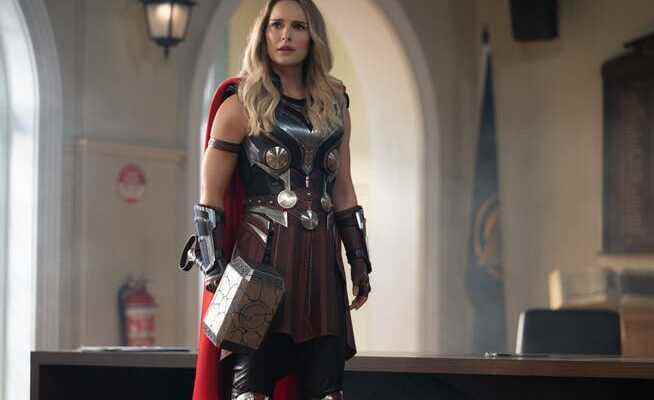Director Taika Waititi exposes superhero cinema to satirization. The film works almost like a never-ending stream of internet memes. That also has its good side.
First she steals Thor’s heart, then his hammer: the scientist Jane Foster (Natalie Portman).
The numbers go up and down, they’re low here, they’re up there, is there another wave coming? Not the Corona, but the number of visitors to the cinemas are meant. But even with those, soon no one will understand their meaningfulness. In America, people have long been running enthusiastically to the multiplexes again, while Netflix is furloughing its employees over in Los Gatos. With us, on the other hand, the halls are almost as empty as in the worst lockdown. It is unclear whether anyone is still streaming. Netflix and Co. hardly publish any numbers.
It’s clear that there are cultural differences: Americans traditionally escape the heat in air-conditioning cinemas, we prefer swimming pools. But that doesn’t explain everything, things aren’t (yet) going quite as well in American cinemas as they did back then, when no (streaming) virus had yet infected people. But what works, works: Everyone wanted to see the new “Top Gun”, “Doctor Strange” for some reason almost as many. On the other places: Dinos, Bats, Spiders.
How could the gods?
The cultured person breathes a sigh of relief and says: «The cinema is alive!» While the inner cultural pessimist dismisses it: “But they’re all blockbusters!” What’s next? With the next one, of course: “Thor: Love and Thunder”, the 29th feature film from the Marvel Cinematic Universe, is now showing in cinemas. Is he good and does it matter?
Short answer: “Thor 4” is not great, but the ticket forecast for the weekend is cheap. A little more detailed: The film begins with a feeling like in the wrong room: A white man with a bald head crawls through the desert, isn’t that Lord Voldemort? No, you’re right here, the pale human does not come from the “Harry Potter” series, but will soon act as the godslayer Gorr, played by Christian Bale. By the way, his motive is honest: in the desert the man’s child dies of thirst, why did the gods allow the human tragedy?
Gorr comes into possession of the mighty necro sword, with a blade so sharp it slices even god flesh. Can Thor (Chris Hemsworth) do anything about it? His hammer crumbled in the last film, but now he’s got an axe, and it comes down to a $250 million round of rock, paper, scissors: sword or axe, which wins?

Superhero or Rock Star? Chris Hemsworth plays Thor again.
A hammer against cancer
The screenplay tries something idiosyncratic: the renunciation of a comprehensible narrative structure. Most of the time you don’t know where you are and where is where. The film works like a two-hour series of GIFs, those funny short internet memes. Even if you don’t know Whatthat’s always the case some Come on. One often hears Guns N’ Roses, and the director Taika Waititi (“Jojo Rabbit”) dribbles a dash of melodrama into the shaker.
Natalie Portman, absent from the third part, reprises her role as scientist and Thor’s ex-Jane Foster. That sounds funny, isn’t it – Jane has cancer, level 4 – and then yes: She goes to find the remains of Thor’s hammer, because it is a cure-all. What helps fight evil must also work against cancer. And indeed, the hammer transforms Jane into a Thor.

Once a couple, now they look like siblings: Jane and Thor.
Thor (she/her) has unexpected powers, a costume and is blond. Her ex and she wear a partner look, it’s a single slapstick; where will this end? With Zeus, of course: the Thors approach him to request an army to fight against Gorr. But the Olympian supreme god, played by Russell Crowe with a Greek accent so strange it sounds almost Russian, says something along the lines of: War? There is no war. He prefers to have orgies.
“Thor: Love and Thunder” is higher nonsense, just a small step, and we are at the pastiche cinema, as Mel Brooks used to manage it. You remember his “Star Wars” parody “Spaceballs” (1987), it’s come so far: It’s now the benchmark for Marvel.
